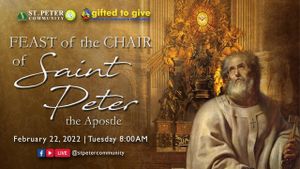Hassan Nasrallah's health has recently become the focal point of widespread speculation, particularly following his long absence from public view, culminating with his death on September 27, 2024. This marks the end of 32 years of leadership of the Secretary General of Hezbollah, as he left behind a legacy intertwined with significant political and militant developments not only within Lebanon but across the region.
Born on August 31, 1960, Nasrallah rose to prominence for his leadership after taking over the position of Secretary General on February 16, 1992, following the assassination of his predecessor, Abbas al-Mousawi. His ascension heralded the Party of God’s growing influence, both politically and militarily, especially amid turbulent times punctuated by conflicts with Israel and varying degrees of support from Iran.
Following repeated absences which fueled fears for his health, news of Nasrallah's death has sent shockwaves through Hezbollah ranks and supporters. The emotional toll is palpable: “Tomorrow the last page of the story of Sayyid Nasrallah will be turned during his funeral to his final resting place,” stated Nidaa Al-Watan. This solemnity isn't merely about mourning but reflects deep-rooted sentiments tied to Hezbollah’s identity.
Supporters and members of the Lebanese community embody mixed emotions; many are grieving the loss of their iconic leader, grappling with disbelief, “There are many who cannot believe 'the Sayyid' can die and they will march at his bitter last farewell,” as articulated by sources familiar with the situation. Such expressions highlight the void he leaves behind, amplifying discussions about the leadership crisis within Hezbollah.
Political analysts are now speculating on potential successors and the immediate impact on Hezbollah's strategic direction. With Nasrallah’s death, Hezbollah faces significant uncertainties. Would it continue along the path established by Nasrallah or pivot to accommodate new political realities?
Hezbollah has been known for its powerful allegiance to Iran, which shaped their military and political operations significantly. His departure prompts inquiries as to whether the organization can maintain its cohesion and strategic goals without its charismatic leader.
Hezbollah's leadership—a blend of militaristic prowess and political acumen developed over decades—has traditionally been characterized by tight-knit loyalty. Whether this bond can survive the seismic disruption of Nasrallah’s passing remains to be seen. Analysts speculate the party may face challenges reconciling its ideological underpinnings with practical needs on the ground.
His passing does not merely symbolize the end of leadership but the cessation of his era marked by conflict, survival, and resilience against numerous adversities. The unique tactical methodologies which defined the organization under his watch must now evolve to address contemporary issues, be they domestic or external.
Observers note how Hezbollah’s political agenda will need recalibration as they transition leadership. The delicate balance of power within Lebanon, shadowed by Iranian influence and U.S. positioning, creates compelling circumstances for future leaders—who they will be and their transformative visions for Hezbollah.
“The crowd will participate not just to mourn the dead but to bid farewell to the phase they lived with their historical leader,” remarked media circulations, indicating the gravity of Nasrallah's impact on Hezbollah’s identity. His legacy reflects over three decades of leadership, which reshaped the organization against the socio-political landscapes of Lebanon.
While Hezbollah supporters reflect on Nasrallah's substantial contributions to their cause, political factions and leaders across the region are observing closely, gauging how his departure might reshape the dynamics not just of Hezbollah but the geopolitical interests of Lebanon.
With mourners expected to parade to honor their beloved leader, his loss resonates across borders, leaving questions not just about the future of Hezbollah, but the fate of Lebanon tightly woven in its history of conflict and negotiation.
Despite the uncertainties looming over Hezbollah’s structure and alliances post-Nasrallah, his guidance throughout years of confrontation set the path for subsequent trajectories. The core question, now haunting every analysis, will be: can Hezbollah sustain its ideological fortitude and political fortitude without the unequivocal mandate of Hassan Nasrallah steering its ship?



